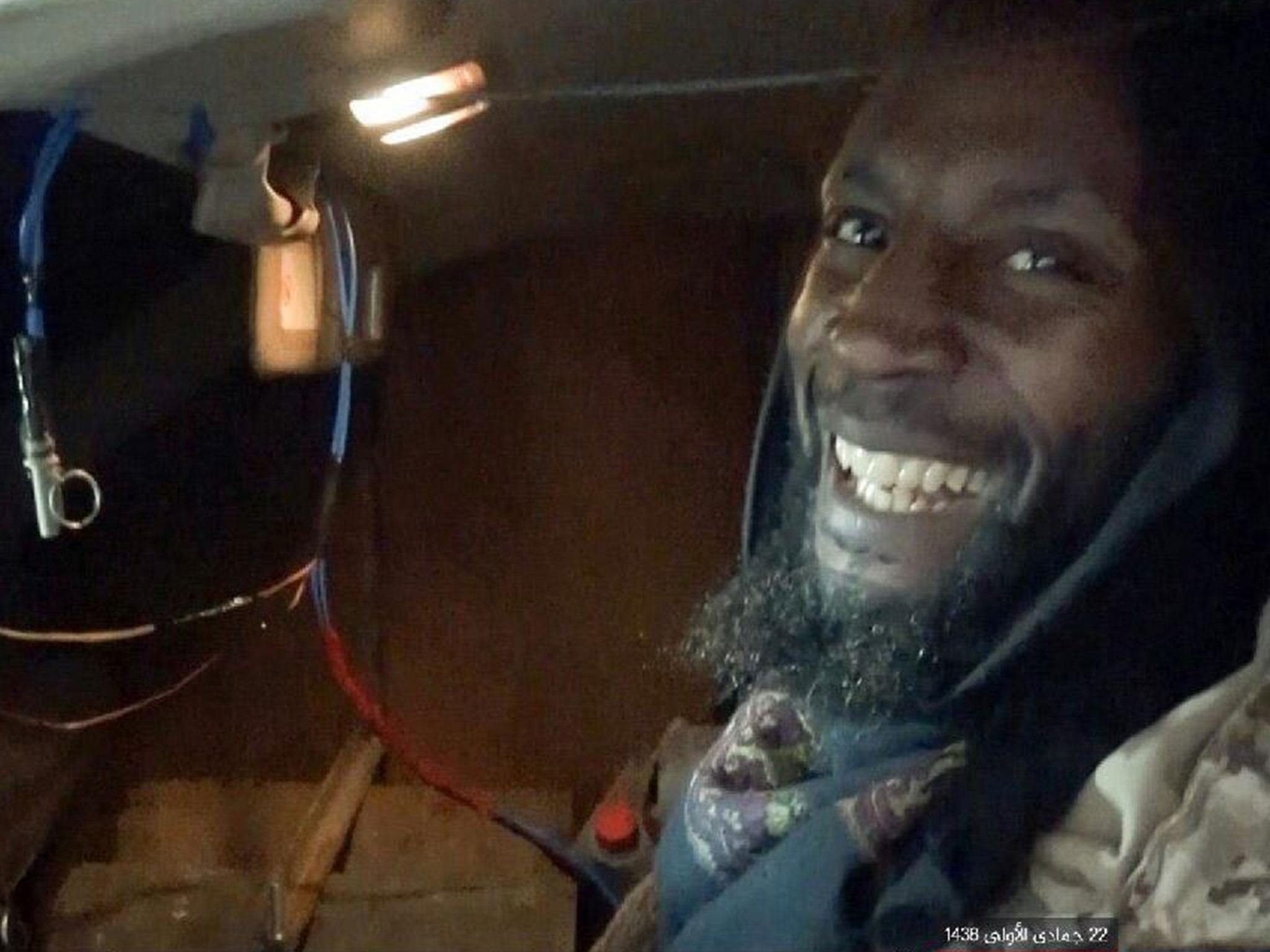British Isis suicide bomber 'was former Guantanamo Bay inmate paid £1m compensation'
Family identifies Manchester born Muslim convert Jamal al-Harith as man Isis claims blew himself up in Mosul

A British Isis fighter who carried out a suicide bombing attack in Iraq was a former Guantanamo Bay detainee reportedly paid £1m in compensation from the British Government after his release.
The bomber, named by the terror group as Abu Zakariya al-Britani, is said to have blown himself up in an explosives-laden vehicle in a village south of Mosul.
Isis claimed there had been many casualties, though this has not been officially confirmed, and released a picture of a grinning al-Britani.
The group later released a video showing a car driving down the road, which then cuts to footage of a plume of smoke rising in the distance.
The 50-year-old, also known as Jamal al-Harith, was suspected of terrorism by the Americans but freed from the US detention centre in 2004 after lobbying by the British government.
He reportedly alleged torture and successfully claimed compensation of £1m after alleging British agents were complicit in his mistreatment.
The Muslim convert, from Manchester, was born Ronald Fiddler, according to the BBC.
He turned to Islam in the 1990s and travelled to the Pakistani city of Quetta in 2001 for what he claimed was a religious holiday.
He has insisted he tried to enter Iran when the US invaded neighbouring Afghanistan, but was captured and imprisoned by the Taliban on suspicion of being a British spy.
Once released by Northern Alliance soldiers in 2002, he was sent to Guantanamo Bay in the belief he would have "knowledge of Taliban treatment of prisoners and interrogation tactics".
US authorities later thought he was "probably involved in a former terrorist attack against the US".
However he was released after two years after campaigning from Tony Blair's government.
At the time of his release, then Home Secretary David Blunkett said: "No one who is returned... will actually be a threat to the security of the British people."
The terrorist's brother, Leon Jameson, 53, identified him as the man equipped with explosives in the Isis propaganda video.
Mr Jameson told The Times his brother had "wasted his life" and added: "It is him, I can tell by his smile."
Former prime minister Tony Blair came under fire for the reported lobbying by his government for the Guantanamo Bay prisoner's release.
The Daily Mail quoted Tory MP Tim Loughton as saying: "So much for Tony Blair's assurances that this extremist did not pose a security threat.
"He clearly was a risk to Britain and our security all along.
"It adds insult to injury that he was given £1 million in compensation because of Blair's flawed judgement that he was an innocent."
Responding to the criticism, Mr Blair said it was correct that al-Harith was released from Guantanamo at the request of the British Government in 2004, but added: "He was not paid compensation by my Government. The compensation was agreed in 2010 by the Conservative Government."
He said: "The fact is that this was always a very difficult situation where any Government would have to balance proper concern for civil liberties with desire to protect our security, and we were likely to be attacked whatever course we took."
A spokesman for the Prime Minister would not answer questions on Ms May's role in al-Harith's release from Guantanamo or compensation paid to him, claiming it was an intelligence matter.
Around 850 individuals of national security concern have travelled to join the conflict, according to figures published by the Government last year.
Of those, just under half have returned to the UK and approximately 15 per cent are dead.
A Foreign Office spokesman said: "The UK has advised for some time against all travel to Syria, and against all travel to large parts of Iraq.
"As all UK consular services are suspended in Syria and greatly limited in Iraq, it is extremely difficult to confirm the whereabouts and status of British nationals in these areas."
Join our commenting forum
Join thought-provoking conversations, follow other Independent readers and see their replies
0Comments